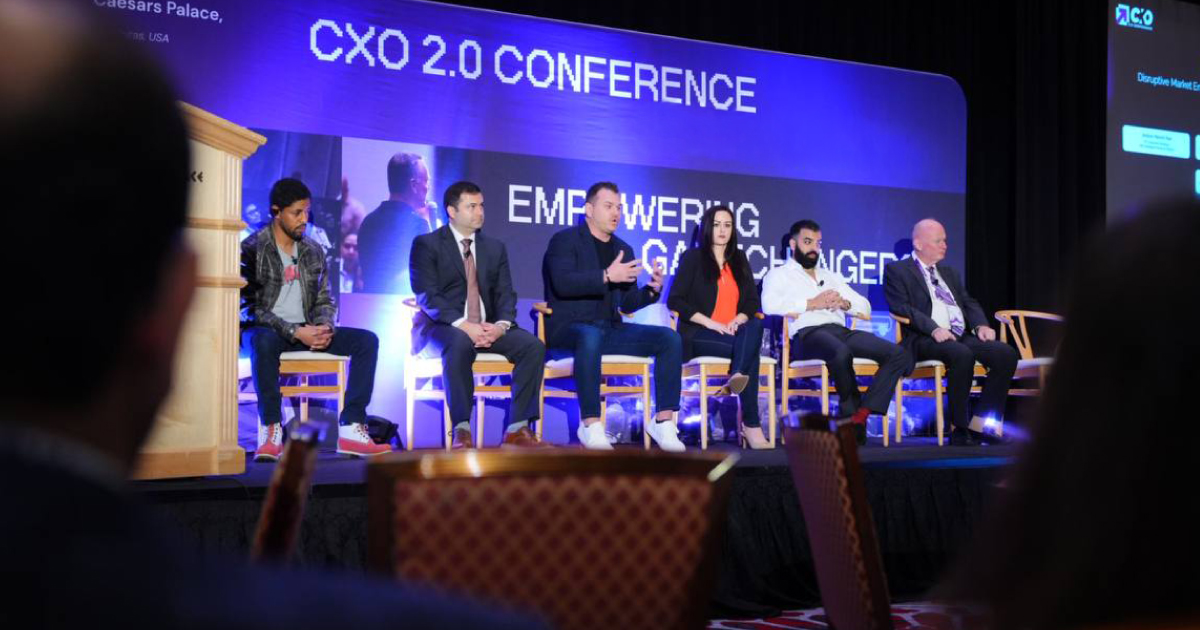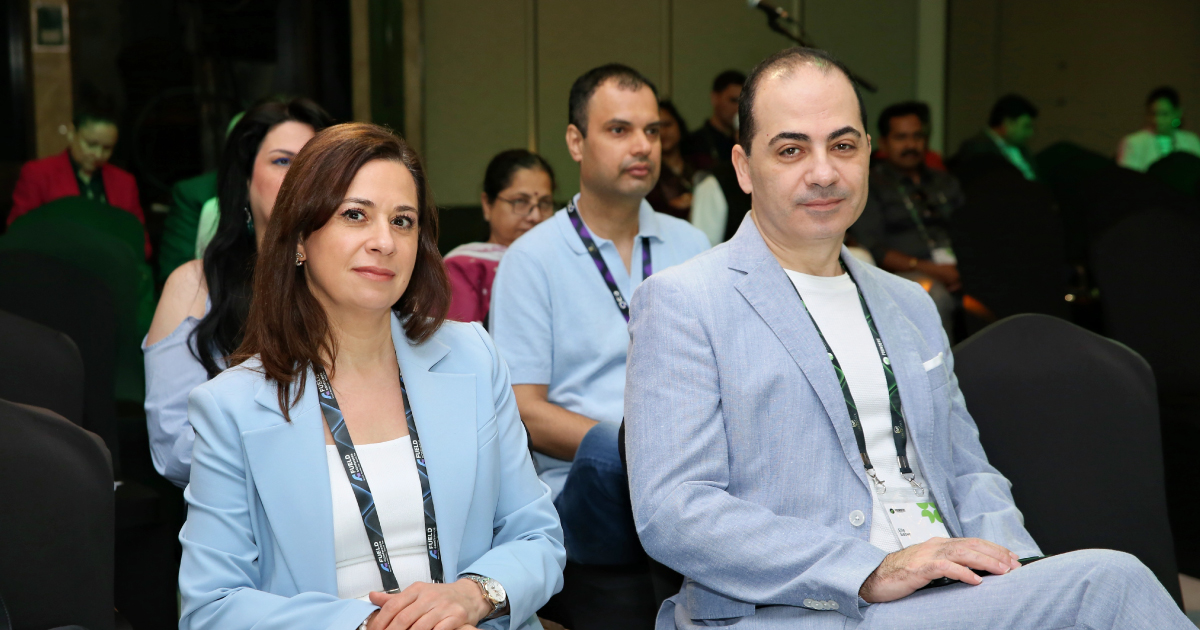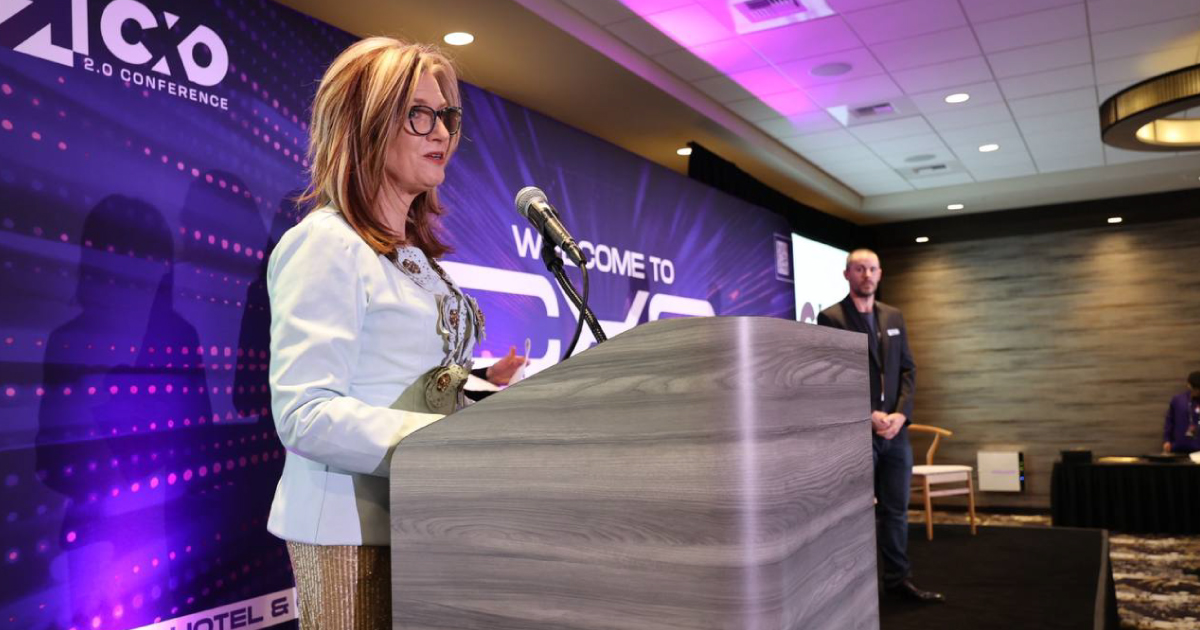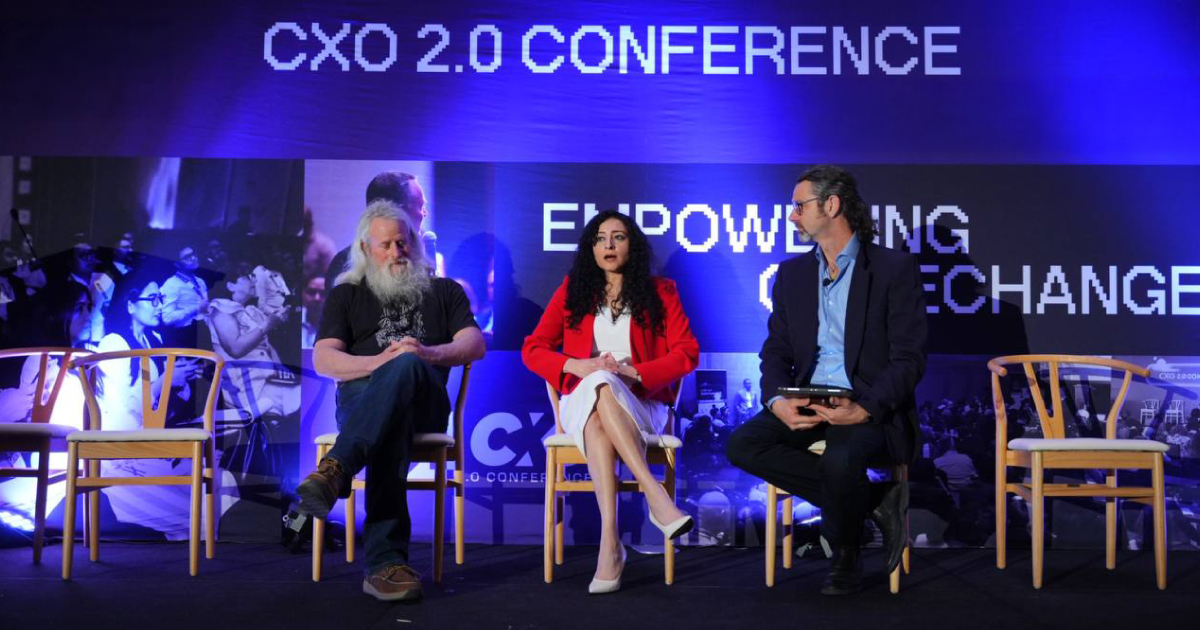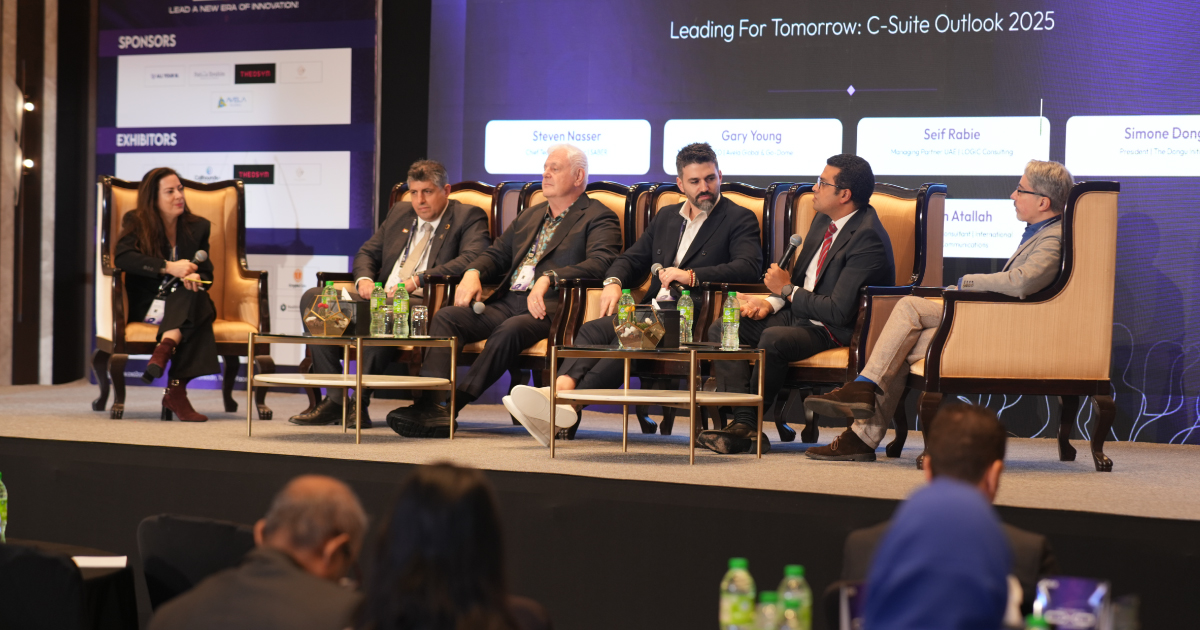What does it truly take to lead with purpose and impact in 2025? As businesses evolve and challenges become more complex, leaders are expected to think differently, act decisively, and inspire those around them. Entrepreneurial leadership offers a powerful approach that combines vision, adaptability, and a people-first mindset. At our business leadership conference, we continue to see how leaders who embrace innovation and collaboration are better equipped to navigate change and drive meaningful results.
Let’s explore how this leadership style empowers individuals to lead with confidence in fast-changing environments. The CXO 2.0 Conference brings together forward-thinking entrepreneurs, executives, and changemakers who are reimagining leadership for today’s world. From core principles and communication strategies to forward-looking goals, this guide outlines the mindset and practices that define entrepreneurial leadership in 2025 and beyond.
The Mindset Behind Entrepreneurial Leadership
Great leadership starts with mindset. The most effective leaders think creatively, stay open to new possibilities, and bring people together with a clear sense of purpose. They create environments where ideas can grow, teams feel empowered, and progress keeps moving forward. This people-first, opportunity-driven approach defines entrepreneurial leadership, blending vision with action and curiosity with confidence. As we move through 2025, leaders who embrace this style are not only driving innovation but also building lasting impact across their organizations.
Core Principles Of Entrepreneurial Leadership
Entrepreneurial leaders work within fast-paced environments where challenges evolve quickly. To lead effectively in this space, certain principles serve as a solid foundation for decision-making, team-building, and growth.
- Self & Social Awareness: Knowing who you are helps you show up as a more grounded and relatable leader. When you’re aware of how your actions impact others, you build trust and create space for honest, human connection.
- SEERS Framework: SEERS stands for Social, Environmental, and Economic Responsibility and Sustainability. This framework encourages leaders to think about their impact on people, the environment, and the economy. When you lead with purpose and accountability, you naturally attract loyal teams and values-driven customers.
- Cognitive Ambidexterity: Entrepreneurial leaders are constantly navigating between creativity and analysis. Some situations call for data, and others rely on bold, creative thinking. Strong leaders understand how to switch between the two and apply the right approach at the right time.
These goals represent the core of entrepreneurial leadership and are expected to be explored at the CXO 2.0 Conference. They offer a clear path for leaders who want to lead with purpose, inspire their teams, and drive meaningful impact.
What Great Entrepreneurial Leaders Aim To Achieve
Entrepreneurial leadership has a clear purpose. At our leadership summit, we explore how it turns ideas into action through collaboration, agility, and continuous learning. It empowers teams, drives progress, and keeps organizations future-ready. The following goals reflect what today’s entrepreneurial leaders focus on to create meaningful and lasting impact.
- Swift Decision-Making: Leaders avoid bottlenecks by empowering their team and taking timely action.
- Clear Vision Setting: A strong vision provides direction and motivation, helping teams focus and rally around a shared goal.
- Smart Risk Management: Entrepreneurial leaders are not reckless. They take calculated risks and lead their teams with awareness and preparedness.
- Resource Optimization: Whether it’s time, talent, or tools, good leaders know how to make the most of what they have.
- Ongoing Development: Learning doesn’t stop. Leaders encourage curiosity, upskilling, and experimentation across their teams.
These goals set the tone for how entrepreneurial leaders show up and make decisions that matter. Let’s explore the communication strategies that help bring these goals to life in everyday leadership.
Communication Strategies For Entrepreneurial Leaders
In a fast-moving world, how you communicate as a leader matters just as much as what you communicate. Entrepreneurial leaders build strong teams through intentional and effective communication.
- Be Clear And Concise: Whether in meetings or messages, clarity saves time and eliminates confusion. Stick to key points and actionable next steps.
- Pay Attention To Non-Verbal Signals: Body language, tone, and eye contact often speak louder than words. Leaders who are aware of these cues build stronger connections.
- Practice Active Listening: Make space for your team’s input. Give them your full attention, reflect on what they’re saying, and respond with care.
- Maintain Open Lines Of Dialogue: Encourage honest feedback and make yourself accessible. This builds trust and transparency across the organization.
Communication brings teams together and turns ideas into action. Experts at our leadership summit highlight it as a key driver of connection, trust, and momentum, helping leaders create an environment where everyone feels heard, motivated, and ready to contribute their best.
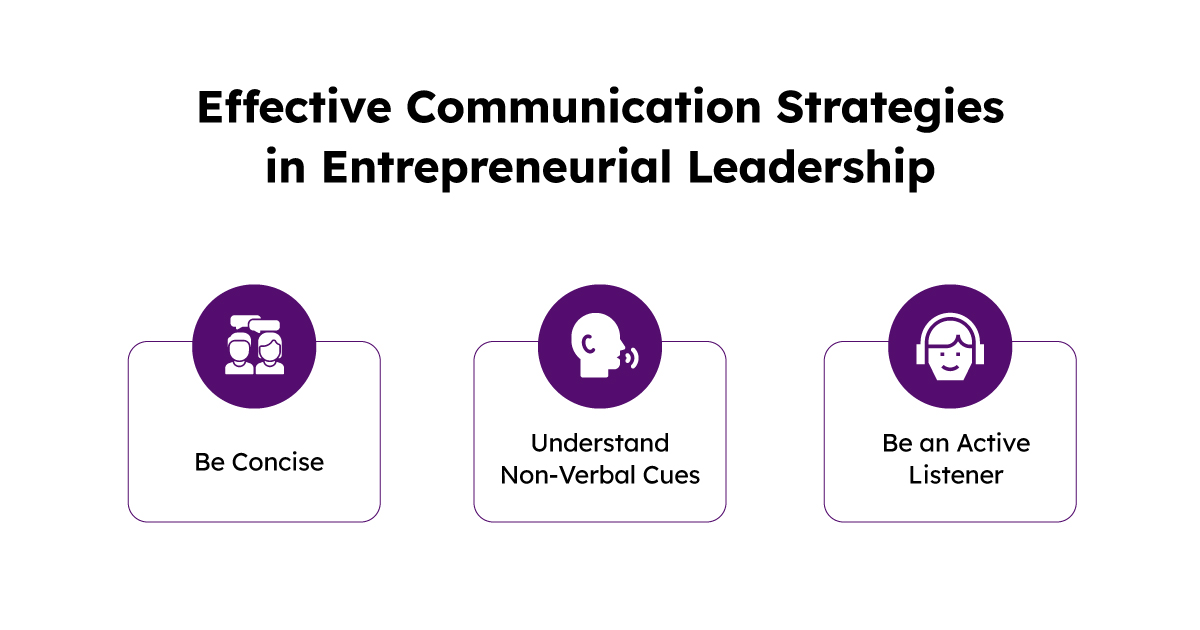
Overcoming Entrepreneurial Leadership Challenges
Every leadership style comes with its own set of hurdles. Entrepreneurial leadership is no different. Here are three common challenges leaders face today — and ways to address them:
Navigating AI & Automation:
- Challenge: The rise of new technologies can feel overwhelming. Leaders must adapt and bring their teams along for the ride.
- Solution: Embrace change by learning how to integrate technology into your operations. Offer training to help your team adopt tools that enhance their work rather than replace it.
Hiring & Retaining Talent:
- Challenge: Attracting the right people and building a strong team can be tough, especially for new or growing businesses.
- Solution: Define roles clearly and hire intentionally. Delegate tasks based on strengths and invest in onboarding and training. Make your team feel like true collaborators, not just employees.
Establishing A Strong Culture:
- Challenge: Shaping company culture takes time and buy-in. Resistance, misalignment, and lack of communication can derail efforts.
- Solution: Be clear about the kind of culture you want to build and involve your team in the process. Create an environment where values are lived, not just written down. Keep communication flowing at all levels.
Every challenge presents a chance to grow, rethink, and build stronger foundations. At our leadership summit, entrepreneurial leaders are expected to share how approaching these moments with clarity and resilience can lead to fresh opportunities and stronger, more successful teams.
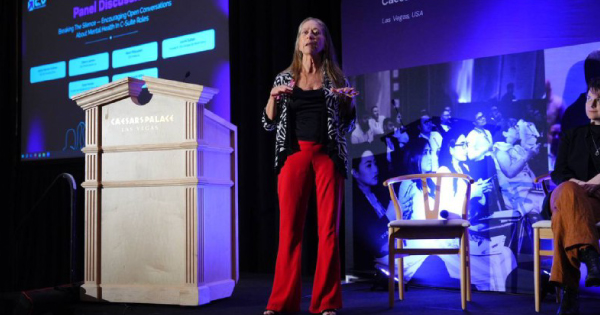
The Road Ahead For Entrepreneurial Leaders
The role of the entrepreneurial leader is constantly evolving, and the future promises even greater opportunity for those who lead with intention and heart. Leaders who embrace sustainability as a business priority, build inclusive teams that reflect diverse perspectives, and adopt technologies that empower people are expected to stand out in a competitive landscape.
Future-ready leadership also calls for a strong commitment to both personal and team development, along with the ability to lead with humility and vision. Entrepreneurial leadership is not just a business approach. It is a forward-thinking mindset that will continue to shape the next wave of meaningful innovation and long-term growth. To explore these ideas further and hear from voices leading this change, attend our leadership summit and be part of the conversation.
Bringing It All Together
Entrepreneurial leadership in 2025 is all about vision, adaptability, and building people-centered organizations that thrive in uncertainty. It calls for leaders who are grounded in purpose, committed to growth, and unafraid to challenge the status quo.
At our business leadership conference in Dubai, we aim to explore how these qualities can shape stronger, more resilient organizations across industries. The CXO 2.0 Conference continues to spotlight voices that are driving this transformation and redefining what leadership looks like in a fast-moving world. If you're ready to lead with clarity, courage, and lasting impact, now is the time to step forward and be part of that change.
FAQs
Q. Who is entrepreneurial leadership best suited for?
A. Entrepreneurial leadership is ideal for founders, executives, team leads, and professionals driving innovation in fast-changing environments. It suits anyone looking to lead with agility, creativity, and purpose. Whether in a startup or a large organization, this style helps you adapt, empower others, and grow with intention.
Q. How is entrepreneurial leadership different from traditional leadership?
A. Traditional leadership often focuses on stability and hierarchy, while entrepreneurial leadership thrives on adaptability, collaboration, and proactive thinking. It encourages quick decision-making, experimentation, and a people-first culture. This modern approach helps teams stay resilient and motivated through change.
Q. What role does emotional intelligence play in entrepreneurial leadership?
A. Emotional intelligence is essential to leading effectively in uncertain and people-focused environments. It helps leaders understand team dynamics, manage their own responses, and build stronger relationships. High EQ leads to more trust, better communication, and stronger collaboration.
Q. What topics will be covered on the CXO 2.0 Conference agenda?
A. The agenda includes sessions on leadership innovation, digital transformation, strategic growth, and team building. It also features panel discussions, keynote talks, and networking roundtables designed for practical learning. Attendees can expect a balanced mix of insights, trends, and real-world strategies.
Q. Where is the CXO 2.0 Conference held?
A. The CXO 2.0 Conference takes place in two premier global locations: Dubai and Las Vegas. Both cities offer dynamic business environments, world-class venues, and strong international appeal. Whether you choose Dubai or Las Vegas, you can expect an immersive experience designed for visionary leaders and global decision-makers.


